Gabrielle Wood
Staging Security - The Bishopsgate Bombing 1993
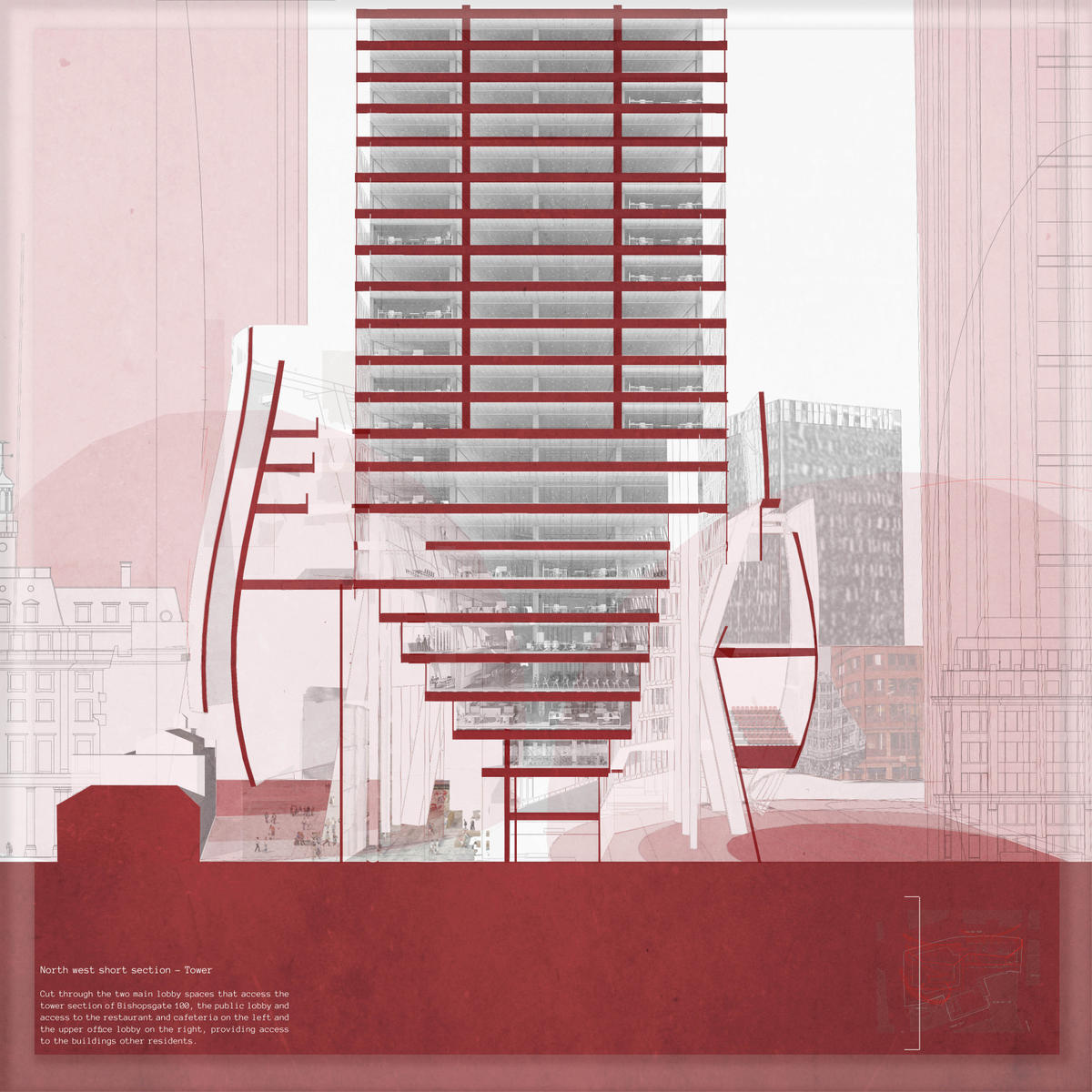
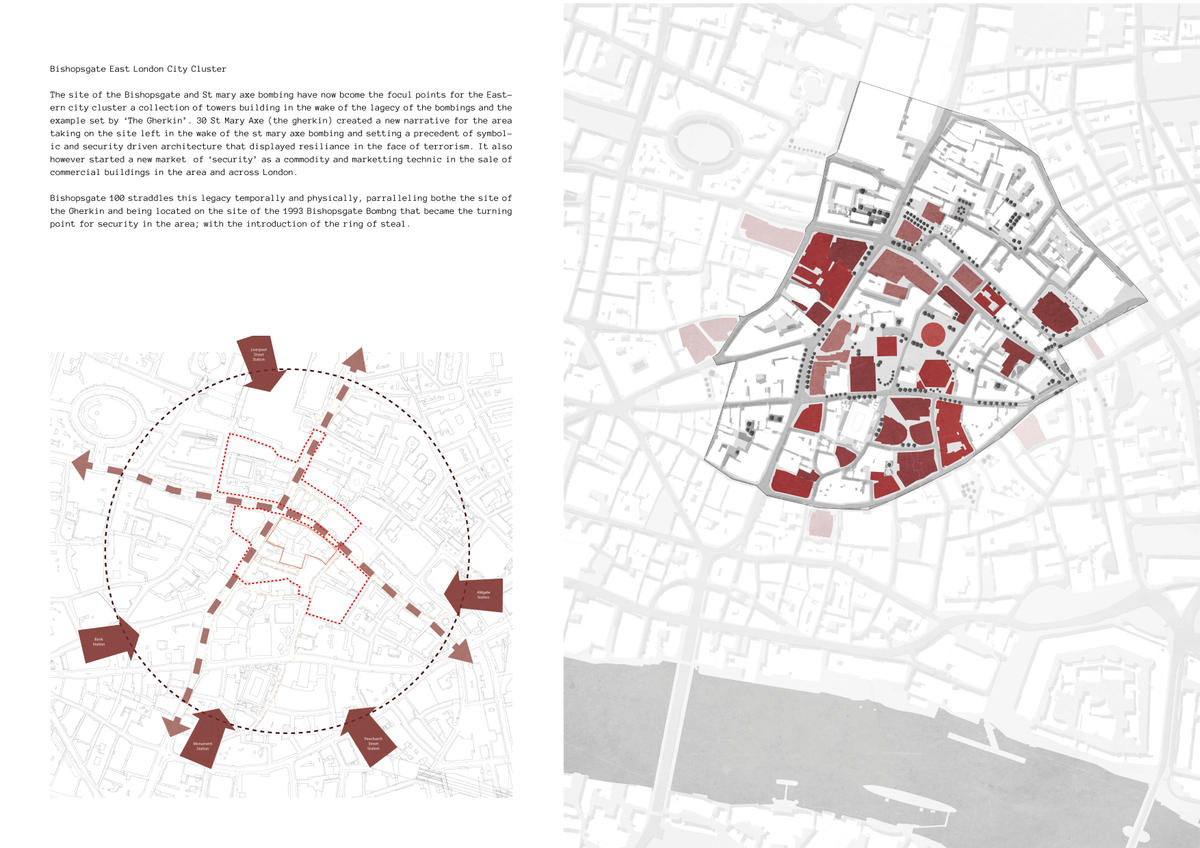
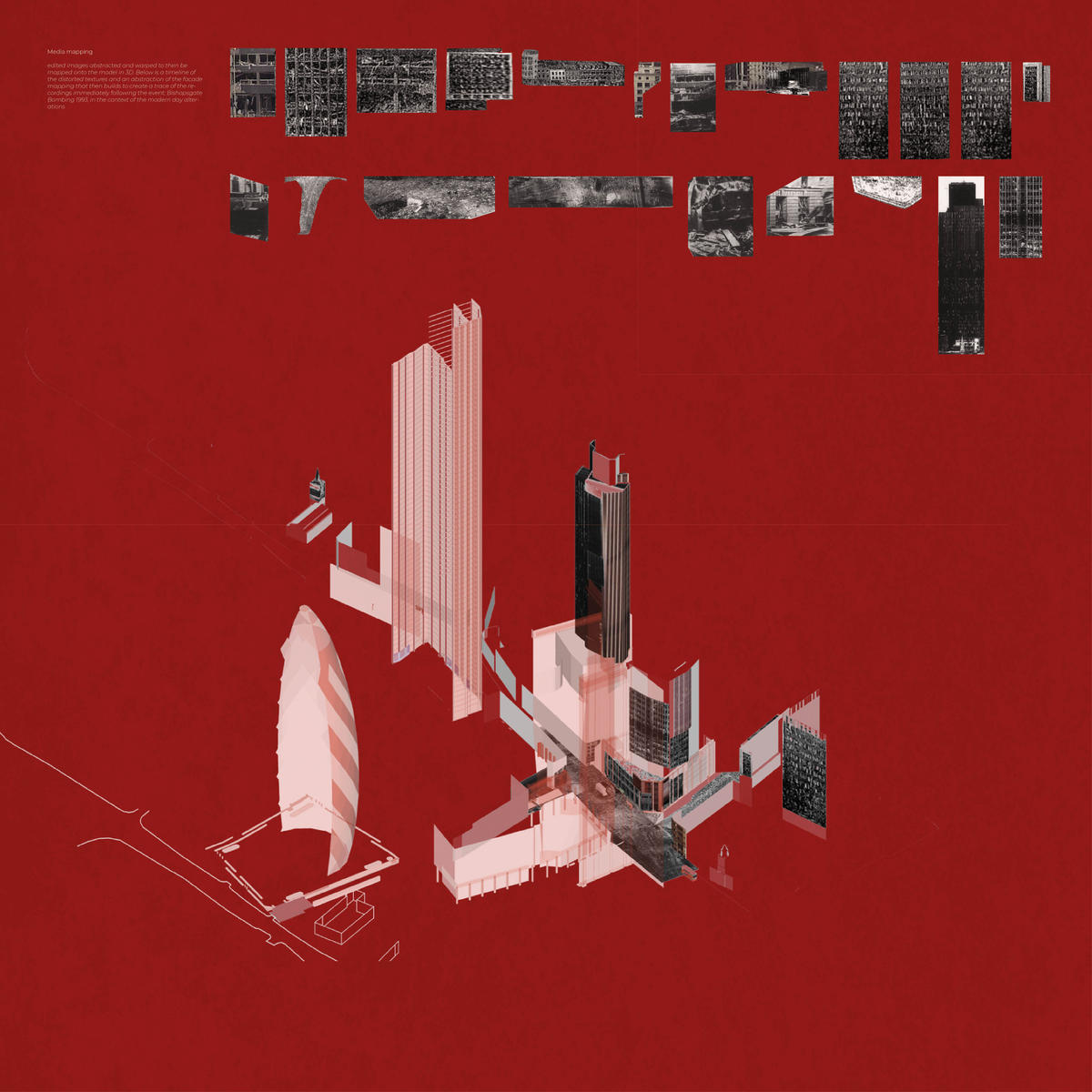
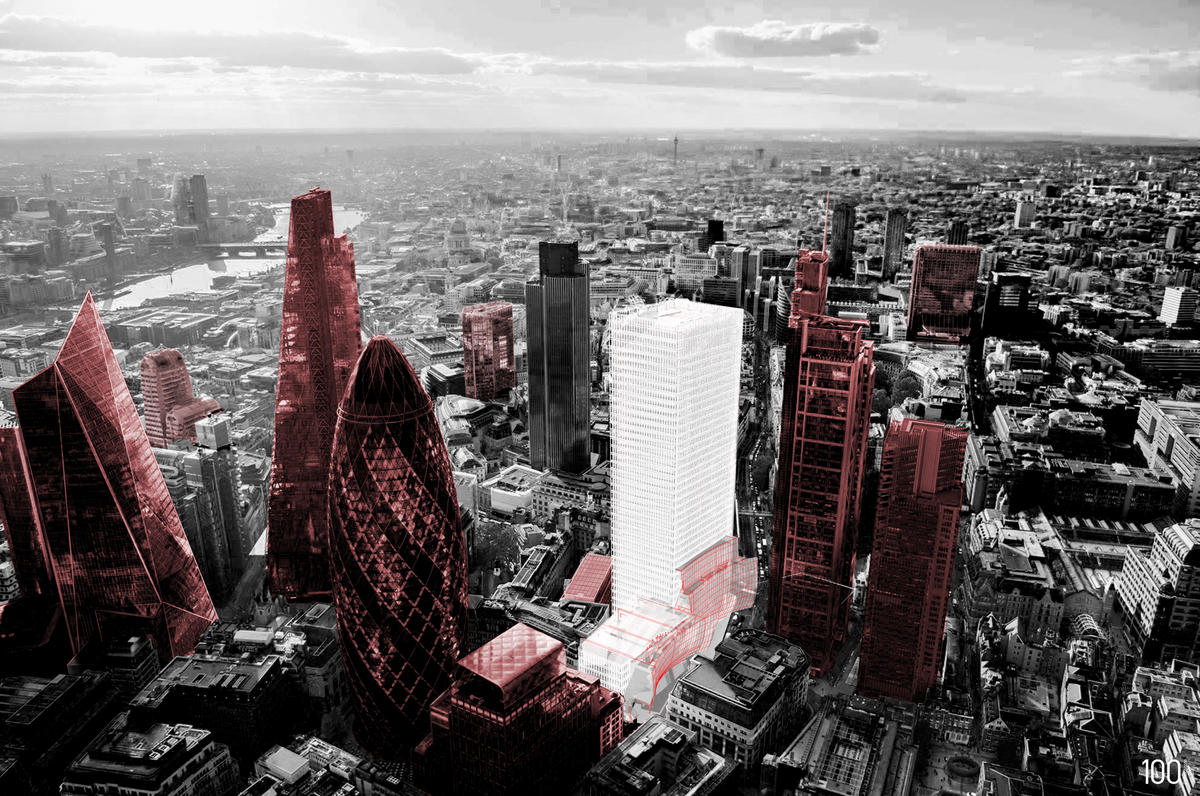

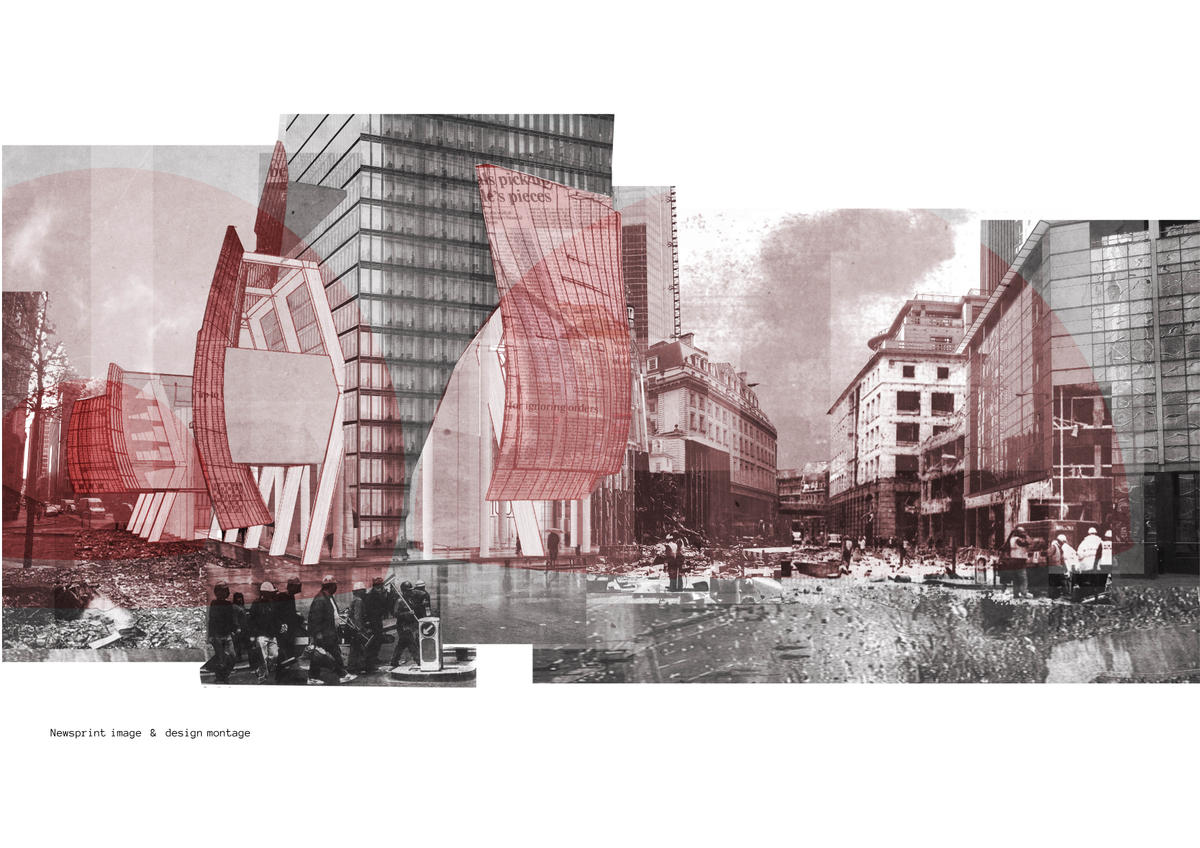
Bishopsgate 100 - North East Facade Section
Investigation into the 1970’s -1990’s London IRA bombing campaign focusing specifically on Bishopsgate and the imagery and media coverage that led to an architectural language of defence and security
School/Level
Category
Year
On the 24th April 1993 a vehicle explosive went off in the Centre of the ward of Bishopsgate, creating large scale damage and a turning point for an approach to security within the city. After two decades of destruction and terror in London; as a result of the IRA bombing campaign, the ring of steel was introduced and the city began to be cordoned off.
My initial investigation focused on the imagery generated after the event; the proliferation of destroyed buildings and infrastructure as a spread of terror and an instigator for change. The Bishopsgate bombing and the St Mary Axe bomb (1992) resulted in not only a physical and media event a but an architectural legacy of reactionary strengthening; a push towards creating architecture as symbols of strength and resilience. This narrative led to the design of 32 St Mary Axe ‘the Gherkin’ for insurers Swiss Re and the subsequent towers that now populate the city cluster.
Bishopsgate 100 is positioned parallel to the site of the bombings and the Gherkin, the site of my proposal, B100 provided an opportunity to detourne and explore the narratives of defense and security in blast facade design. In rupturing B100 I have interrogated the techniques we use to counter blast risks and how these tell a story within the facade, creating psychological and structural defense mechanisms that communicate the legacy and history of Bishopsgate 1993.